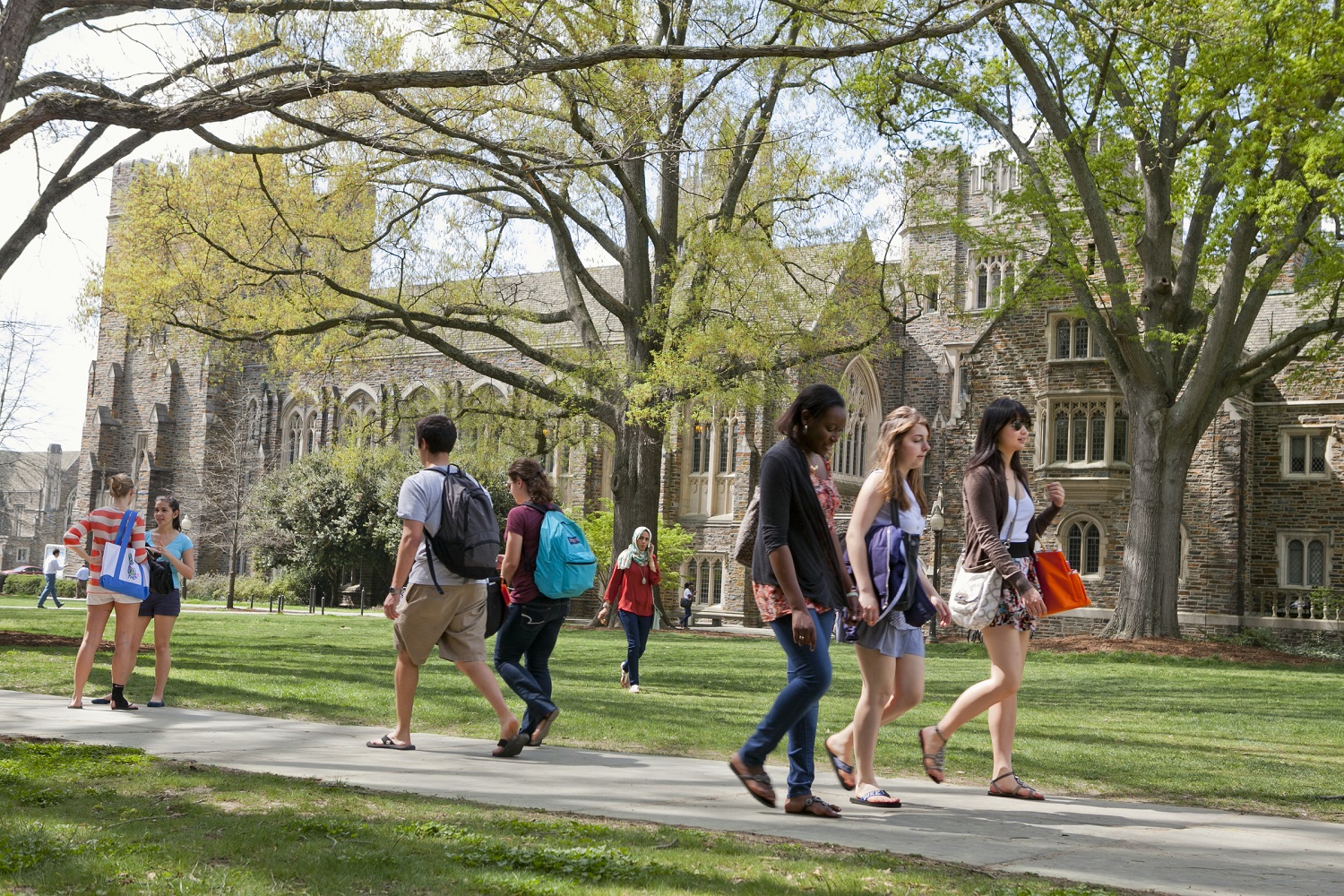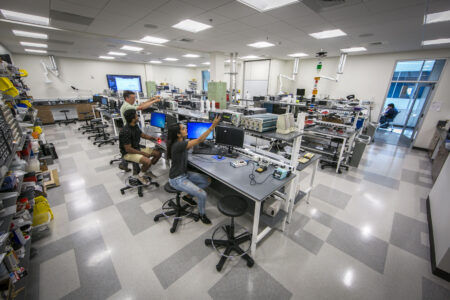Since its first classical engineering course in 1851, Duke University’s Pratt School of Engineering has become a national leader in engineering education, with all of its programmes ranking among the top 30 in their fields (US News and World Report). “These rankings reflect our unyielding commitment to boldly solving pressing societal problems through our education and research excellence,” says Jerome Lynch, Vinik Dean of the Pratt School of Engineering at Duke University.
In 2024, Duke celebrated its 100 years of excellence in engineering education. As it looks toward its future potential, the university is focusing on making major positive impacts nationally and globally. One programme that best encapsulates this mission and how the school has always been about solving complex challenges to improve the quality of life for communities is the new Master of Engineering in Climate & Sustainability Engineering.
“The need for a new generation of engineering professionals who can immediately implement sustained actions is our motivation for launching the new Master of Engineering in Climate & Sustainability Engineering,” said Henri Gavin, the W.H. Gardner, Jr. Chair of Civil & Environmental Engineering at Duke. “The world requires engineering solutions that mitigate the effects of climate change, but also those that can help communities and organisations adapt and increase their resilience to those effects.”
So, how does a top 25 engineering school transform students into leaders who can devise practical and impactful solutions to address an increasingly urgent climate crisis?

Duke University’s new Master of Engineering in Climate & Sustainability Engineering nurtures holistic leaders to confront the effects of climate change. Source: Duke University
Tailored curriculum, curated by industry leaders and expert faculty
The MEng’s curriculum is interdisciplinary and specialised. High-impact courses include Applied Climate and Sustainability Engineering, Systems Engineering for Climate and Response Modelling, The Materials Transition: From Linear to Circular Material Systems, Risk and Resilience Engineering, and Energy Transition. As a student, you can specialise in areas such as Design Climate, Data Science, FinTech, and Hydrology, to name just four.
The programme is designed this way because industries need it to be this way. Projects need leaders who know the technical side of things and understand the systems they are developing on a much broader basis. “As climate and equity challenges accelerate and become more visible, designers of future infrastructure/products/processes will need a very multidisciplinary approach. Those who can think in systems, balancing the essential tradeoffs, will be increasingly valuable,” says Industry Advisory Board member Bob Beinstein.
Duke knows this because in the course of creating the MEng, it listened or engaged deeply with industry and alumni experts and leaders. Few other programmes can say the same.
With the curriculum in place, bringing it to life are faculty members with research focus areas that synergise with it. For example, Assistant Professor Liang Feng is a pioneer in engineering platforms to store gasses for climate application, such as capturing carbon or fuelling vehicles. Professor Judy Ledlee, the Executive-in-Residence who leads the Design Climate programme, works on clean-tech innovation and commercialisation in green technology. Associate Professor Leanne Gilbertson bridges molecular and system-level material design for applications that improve the environment and public health.

The new Master of Engineering in Climate & Sustainability Engineering includes 1:1 communications consultations and career coaching, as well as curated social activities. Source: Duke University
Leadership training by current leaders
The programme is led by Sara Oliver. A graduate of Duke’s civil and environmental engineering programme in 2006, she spent 10 years working on and leading a flood mitigation programme for the World Trade Centre site. Then, she managed a contract for the Federal Emergency Management Agency (FEMA) where she worked with marketing giant Ogilvy to educate communities about flood risk and motivate them to take action to protect themselves.
The MEng’s courses on “Management of High-Tech Industries” and “Business Fundamentals for Engineers” — as well as workshops and seminars — are set to prepare students for similar career trajectories as Oliver. In fact, the programme was created at the graduate level, rather than an undergraduate degree, so that it could bring together students with different engineering degrees and careers. This well-rounded experience allows graduates to hit the ground running.
“The world desperately needs engineers equipped to synthesise the big picture of the climate landscape with the technical expertise required to implement detailed engineering solutions,” says Oliver. “This new MEng programme will fill this acute need by leveraging Duke’s deep expertise and resources and empowering us to train a pipeline of vigilant leaders.”
Hands-on, experiential learning
The MEng includes a required internship in wide-ranging fields of impact. As it is a graduate programme, students start working on real-world projects from day one. This meets the demand for candidates with practical experience that companies can hire into entry or mid-level positions. In this aspect, Duke students will have support in the form of proactive career services too.
“There’s no substitute for working with a team on an actual project,” says Stephen Burgos, a Public Works Director in the City of Boise who sits on the Industry Advisory Board.
And there are few better ways to prepare for such future projects than following in the footsteps of those with experience working with several stakeholders successfully. “Engineers that can go beyond engineering to think about the social, environmental and geopolitical context of their solutions is a big first step to helping students be changemakers in the future,” says Andrea Johnson, executive director at Green Empowerment, a non-profit that works with rural communities around the world improving access to renewable energy, water, sanitation, and cooking stoves.
When you’re not building a project portfolio to show potential employers, the programme runs other initiatives and events that you can take part in. Think along the lines of conversations around how to increase investment in climate solutions, case studies on Coastal Nature-Based Solutions, and community engagement techniques used to design effective interactions with local stakeholders for successful projects.
Learn more about the Master of Engineering in Climate & Sustainability Engineering today.












